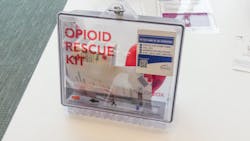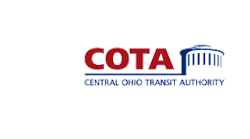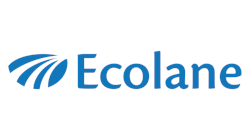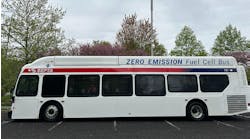A trio of transit stakeholders in Ohio, California and a software supplier in Pennsylvania all announced news that will deliver improved and safe rider experiences.
Overdose rescue kits
In Ohio, the Central Ohio Transit Authority (COTA) is continuing its collaboration with the Alcohol, Drug and Mental Health Board (ADAMH) of Franklin County and Southeast Healthcare to have NaloxBox overdose rescue kits at three COTA locations. The rescue kits contain two nasal spray doses of Naloxone, a lifesaving overdose reversal medication, and will be stocked at COTA South Terminal, COTA Central Office and COTA Easton Terminal.
“COTA believes we have a responsibility not only to provide mobility services to our community but also to participate in positive intervention services in the neighborhoods we serve,” said COTA Senior Director of Risk Assessment Keith Leighton. “We thank ADAMH for its leadership on this project, and we appreciate the crucial support from Southeast Healthcare. It takes community partnerships such as these to ensure we are providing life-saving care in our community.”
Low-income discount
In California, Metrolink launched a program Sept. 1 where passengers with a California Electronic Benefit Transfer (EBT) card will be eligible for a 50 percent discount on all Metrolink tickets and passes. Funding for the discount is made possible by a grant from the Low Carbon Transit Operations Program, administered by the California Department of Transportation.
Riders can use their EBT card at any Metrolink station ticket machine to validate and unlock the discount. A California EBT card is required to validate the discount, while an alternative form of payment is needed to complete the ticket purchase. The discount program will be available for one year or until the grant funds are depleted.
"It’s exciting to introduce new riders to Metrolink trains,” said Metrolink CEO Darren Kettle. “More people in Southern California will now be able to make vital connections to work, school, family, housing and more.”
App complies with digital accessibility standards
Ecolane says its self-service web portal and mobile app has achieved compliance with ADA requirements and WCAG 2.1 Level AA standards for digital accessibility.
The company says its development team dedicated months to updating the platform to receive Voluntary Product Accessibility Templates (VPATs) for their IOS, Android and web portal platforms. Third party testing was performed by accessibility experts at Deque using automated testing software, screen readers, a color contrast analyzer, keyboard-only navigation techniques and a variety of bookmarklets. Some of the updates include alternative text associated with images and other non-text elements and navigational aids.
Ecolane says the benefits to clients are two-fold: accessibility and equity for all, while also helping agencies avoid the risk of lawsuits for not meeting the requirements of all riders.
“We are delighted to provide transit agencies with a technology that is designed around the needs of the communities they serve,” said Ecolane President Spiro Gjorgjievski. “Public transportation is a lifeline necessity for so many and we are committed to continually evolving our technologies to make it intuitive and accessible to all. Providing services that meet the needs of disabled people is not a sideline. It addresses the needs of the majority of people we serve every day.”







